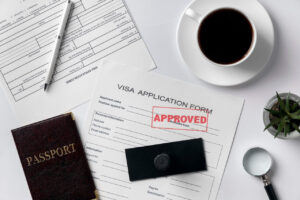Let's recognize the importance of a Non-Disclosure Agreement (NDA): Definition, Types, and Functions in the Business World
Did you know that in the business world there will always be confidential information and there must be something that binds it so that it is not disseminated to others?
Especially in the business world, there must be trade recipes that cannot be known by many people and only certain people can know. However, how do you keep those trade secrets or confidential information safe? You can use a Non-Disclosure Agreement (NDA) is one of the many work agreements used by companies to secure the confidentiality of such information.
Definition of Non-Disclosure Agreement (NDA)
A Non Disclosure Agreement (NDA) is a contract in a professional working relationship that is legally binding and confidential. Many companies also interpret the Non Disclosure Agreement as a confidential agreement document that should not be shared, even when no longer working together.
NDAs are often used by companies to protect confidential information, such as work procedures, financial reports, or business ideas and innovations. If the information is leaked, the company can sue and bring the offending party to justice.
Besides being given to new employees, NDAs are also common when a business is negotiating with another business. They allow the party signing the NDA to share confidential information without fear that the information will be leaked or shared with other parties. NDAs are used whenever confidential information is disclosed to potential investors, employees, clients, suppliers, and other stakeholders who need access to confidential company information.
Types of Non Disclosure Agreement (NDA)
There are three types of Non Disclosure Agreement namely:
1. Non-Mutual Non Disclosure Agreement
This type of agreement is the most commonly used by companies. In this type of agreement, there are two parties involved. However, only one party conveys confidential information. While the other party signs the agreement not to disseminate it.
2. Mutual Non Disclosure Agreement
This type of NDA occurs when both parties disclose confidential information to each other. Where both parties keep the information from being known by third parties or external parties.
3. Multilateral Non Disclosure Agreement
In this type of agreement, there are three parties involved. However, only one of the parties discloses its confidential information. While the other two parties promise to protect the information and not disseminate it confidentially.
What are the Functions of an NDA?
1. Provides clear boundaries
A non-disclosure agreement draws a line between information that is confidential and information that can be shared. The NDA divides this up nicely and clearly. This allows the parties involved to work freely but still maintain the boundaries that have been made in the non-disclosure agreement (NDA).
2. Protecting Sensitive Information
Indeed, the main function of an NDA is, of course, to protect sensitive information. People who sign an NDA, whether they are employees or business partners, show that they have agreed to the terms of the agreement. If violated, the aggrieved party can take the matter to legal action.
3. Protecting patent rights
For companies, the function of an NDA is to protect the company’s patent rights. Public disclosure of a new product invention can disrupt the process of applying for the product’s patent. All parties who make the product must keep the product information confidential. An NDA is made to keep the patent rights while developing this new product or concept from being leaked to the public or competitors.
Then, how is NDA in the Trade Secrets Law?
In Indonesia, NDA is regulated in Law Number 30 Year 2000 on Trade Secrets.
Based on article 3 of the Trade Secrets Law, an information will get protection and needs to be regulated in an NDA if it meets the following requirements:
1. The information is only known by certain parties or is not generally known by the public.
2. Information is considered to have economic value if the confidentiality of the information can be used to carry out commercial activities or businesses or increase economic benefits.
3. Information is considered to be kept confidential if the owner or the parties who control it have taken feasible and appropriate steps.
Violation of Trade Secrets is regulated in article 13 of the law. Infringement occurs when a person intentionally discloses a Trade Secret, reneges on an agreement or denies a written or unwritten obligation to keep the Trade Secret in question. The offending party will get a maximum prison sentence of 2 years and or a maximum fine of 300 million.
Well, that’s the information related to NDA legalmates! Hope it’s useful 🙂
Need help with making an NDA? Let’s consult Documenta!
Still confused about NDA?
Click the tombol on the right to Ask the Documenta Team











